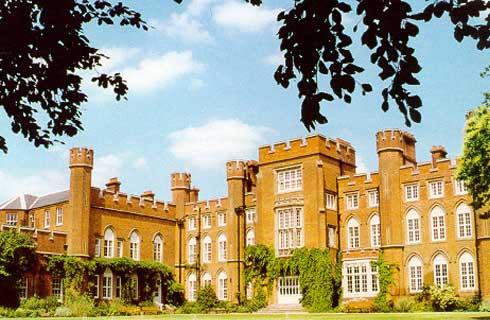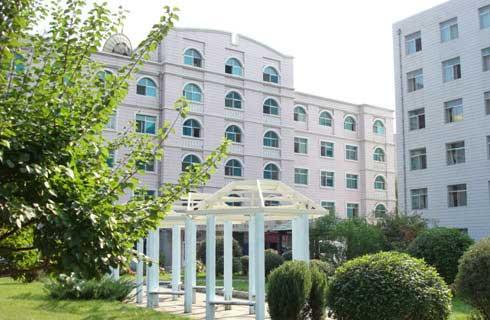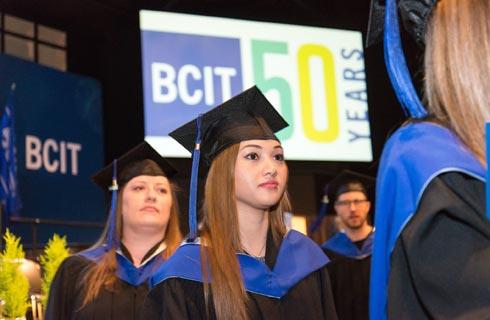Bachelor of Arts in Religion (Barnard)

学历文凭
Bachelor Degree

专业院系
宗教研究

开学时间

课程时长

课程学费

国际学生入学条件
High school transcripts, secondary school records, or GED/TASC test results are required from any student with less than 30 earned college course credits.
Applicants with a GED or TASC and two or more years of high school are required to submit their high school transcripts.
IELTS - overall score of 7.0.
TOEFL IBT - overall score of 100 on the internet-based.
TOEFL PBT - overall score of 600 or better.
IDP—雅思考试联合主办方

雅思考试总分
7.0
了解更多
- 雅思总分:7
- 托福网考总分:100
- 托福笔试总分:600
- 其他语言考试:Duolingo - overall score of 120
CRICOS代码:
申请截止日期:请 与IDP联系 以获取详细信息。
课程简介
At the beginning of the twenty-first century, religion plays a central role in virtually every aspect of human society around the globe. The Religion department's curriculum offers students the opportunity to explore the histories, texts, and practices of many of the world's religious communities and to consider both the profound ways in which religion has worked historically and how it continues to inform and affect the cultural, political, and ethical debates of the current moment. In addition, our curriculum invites students to reflect on the challenging theoretical questions that are generated by the category religion itself, an abstract category that has its own complicated history. The academic study of religion is self-consciously interdisciplinary, drawing upon the methods and insights of literary studies, historiography, social analysis, and cultural comparison. Moreover, the study of religion reminds us that religious identities demand sustained critical analysis, intersecting complexly as they do with race, class, gender, and ethnicity, among other categories of affiliation and identification. In its teaching, research projects, and public programming, the Religion department promotes engaged intellectual inquiry into the rich diversity of religious institutions, rituals, ideas, and communities both past and present.<br><br>The Departments of Religion at Barnard and Columbia marshal an array of academic approaches to the study of religion, representing the depth and diversity of the world's religious traditions, past and present. The category of religion-along with key related terms like belief, spirituality, mystical experience, and ritual-is historically and culturally contingent, many of our courses interrogate these terms and the conditions of their construction. Yet we are committed to engaging religion, which persists so strongly in common usage and public debate, and is so hard to capture in any related domain or theoretical system.
相关申请

预科

奖学金

实习机会

在校学习

跨境学习

校园授课-线上开始

在线/远程学习
学校排名
世界排名
16
数据源:泰晤士高等教育世界大学排名
关于哥伦比亚大学

哥伦比亚大学的历届毕业生和教职员中累计共有97名诺贝尔奖得奖者,于世界各大学中排名第一。 申请哥伦比亚大学的学生人数在过去10年中翻了一番,最主要的原因只有一个:在所有常青藤盟校的校址中,曼哈顿完胜!哥伦比亚大学放任自己的学生在大苹果城中体验生活,但是,在他们承受不了生活压力时,哥伦比亚大学又会给他们提供避风塘。“One nice feature of the dorms is the view of the downtown skyline or the Hudson River.” 哥伦比亚大学每年会拿出1亿2千万美元用来满足所有大一新生的奖/助学金需求。国际生申请哥伦比亚大学需要提交2门SAT分项成绩。而去年被哥伦比亚大学录取的学生中50%的 SAT总分落在了2140-2330这个区间内。如果你想用ACT申请,请确保你的总分在32以上,另外还要提交writing成绩。
本校相关课程
Bachelor of Arts in Slavic Studies

学历文凭
Bachelor Degree
下一个开始日期
课程费用总额
Bachelor of Arts in Russian Language and Culture

学历文凭
Bachelor Degree
下一个开始日期
课程费用总额
Bachelor of Science in Computer Engineering

学历文凭
Bachelor Degree
下一个开始日期
课程费用总额
机械工程学学士学位

学历文凭
Bachelor Degree
下一个开始日期
课程费用总额
Bachelor of Science in Operations Research - Financial Engineering

学历文凭
Bachelor Degree
下一个开始日期
课程费用总额
Bachelor of Science in Operations Research - Engineering Management Systems

学历文凭
Bachelor Degree
下一个开始日期
课程费用总额
其他相关课程
Doctor of Philosophy in Religious Studies

滑铁卢大学
泰晤士高等教育世界大学排名:

学历文凭
Ph.D.
下一个开始日期
课程费用总额
宗教研究文学士学位(3年)

劳伦森大学
泰晤士高等教育世界大学排名:

学历文凭
Bachelor Degree
下一个开始日期
课程费用总额
宗教学文学士

达尔豪斯大学
泰晤士高等教育世界大学排名:

学历文凭
Bachelor Degree
下一个开始日期
课程费用总额
宗教学文学士

爱德华王子岛大学
泰晤士高等教育世界大学排名:

学历文凭
Bachelor Degree
下一个开始日期
课程费用总额
Doctor of Philosophy in Religious Studies

劳瑞尔大学
泰晤士高等教育世界大学排名:1491

学历文凭
Ph.D.
下一个开始日期
课程费用总额
宗教研究文学硕士

渥太华大学
泰晤士高等教育世界大学排名:188

学历文凭
Masters Degree
下一个开始日期
课程费用总额




